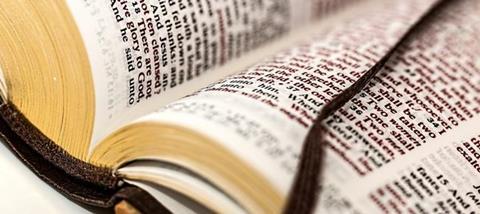Black Lives Matter has revealed our sins of omission, and we can’t hide anymore, argues DB Ryen

“Whoever knows the right thing to do but doesn’t do it, to him it’s sin.” (James 4:17)
There are two broad categories of sin in the Bible. Sins of commission and sins of omission.
Sins of commission are doing the wrong thing, that is, actively breaking God’s law. These get the majority of the focus in biblical teaching and in our moral lives.
Sins of omission get very little focus. These are the good things we should do but don’t. Paul hints at these two types of sin in Romans: “I don’t practice what I want to do, and I do practice what I hate!” (7:15). Both are sin and both are detrimental to ourselves and those around us. But sins of omission are much easier for us to sweep under the rug. After all, we didn’t do anything wrong...did we?
When I was growing up, a new a boy named Simon who wore hearing aids. One day, my friends thought it’d be funny to incessantly tease him about it. I knew it was wrong, and I didn’t join in the bullying, but I did nothing to stop it. This went on for an hour or more, and I said nothing, not even when he ran home with tears in his eyes. Simon’s mother was understandably irate when she found out what had happened. My backside still hurts from the punishment I received later on at home - a painful lesson about my sin of omission.
Sins of omission are much more subtle than those of commission, but if you look closely, you'll see them time and again throughout the Bible. In the Old Testament, Moses instructed Israel that if you see your neighbor’s ox wandering, you must return it. Or if his donkey is stuck in a ditch, you must help get it out. (Deuteronomy 22)
It’s not good enough to just watch disaster or misfortune happen and not do anything about it. In Malachi, God came down hard on Israel for failing to tithe. “You’re cursed with a curse, because you – the whole nation – are robbing me!” (3:9).
The same theme occurs in the New Testament. Jesus taught that “eternal punishment” awaited those who failed to do good to those in need. “As much as you didn’t do for the least of them, you didn’t do for me.” (Matthew 25:45) Furthermore, Paul criticised those who didn’t care for members of their own household, stating they have “denied the faith and [are] worse than an unbeliever.” (1 Timothy 5:8)
Or take the parable of the Good Samaritan. The focus tends to be about the mercy and generosity of the Samaritan, but there’s an equally important lesson with regards to the Priest and the Levite who did nothing. We all condemn their inaction, but what we need to recognise is that the inaction is sin in itself. Their inaction wasn’t neutral – it revealed their wicked hearts. Their inaction itself was sin.
There’s no neutral ground when evil occurs
Evidence of our rampant sins of omission have been brought to light with the Black Lives Matter movement. One of the big faults of our society throughout history is the tolerance of racism. It’s not good enough for people to simply not be racist, we must systematically oppose racism when we see it, even when we’re not directly involved in the act.
We sin when we allow racism to continue and don't speak out against it. This inaction is sin, just like when I didn’t speak out when Simon was being bullied. And this tolerance of injustice and inequality has been a great sin in our world for ages. I’m certainly guilty of it. All around us, evil only thrives when good men and women do nothing.
There’s no neutral ground when evil occurs. There’s no turning a blind eye to injustice, no sticking our heads in the sand. God knows all our sin – the evil we commit and the good we fail to commit. Both are equally sin; both are equally detrimental to ourselves and society. And, as we are currently seeing with protests around the world, our many sins of omission with respect to racism are continuing to plague us still.





































